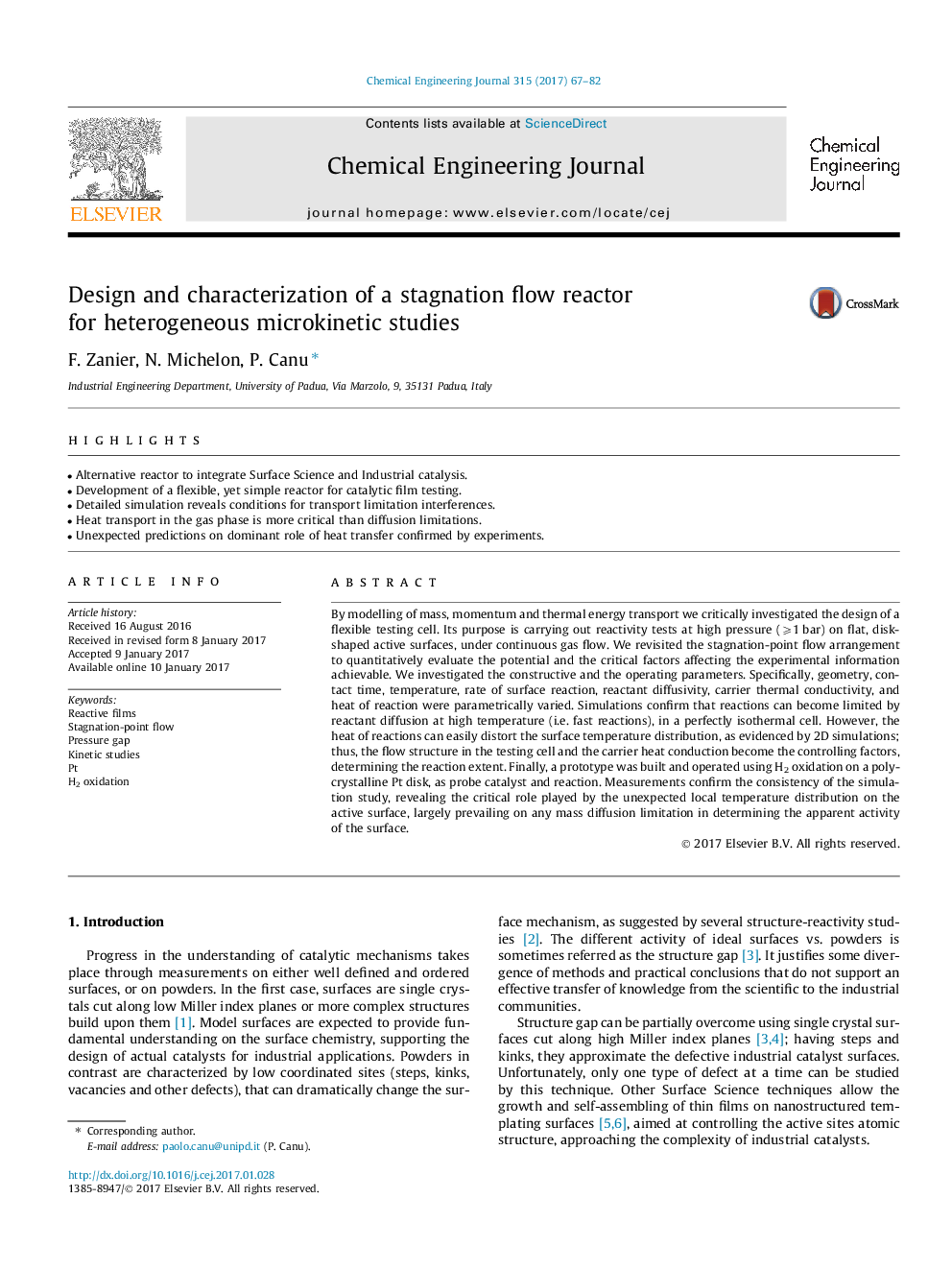| Article ID | Journal | Published Year | Pages | File Type |
|---|---|---|---|---|
| 6466357 | Chemical Engineering Journal | 2017 | 16 Pages |
â¢Alternative reactor to integrate Surface Science and Industrial catalysis.â¢Development of a flexible, yet simple reactor for catalytic film testing.â¢Detailed simulation reveals conditions for transport limitation interferences.â¢Heat transport in the gas phase is more critical than diffusion limitations.â¢Unexpected predictions on dominant role of heat transfer confirmed by experiments.
By modelling of mass, momentum and thermal energy transport we critically investigated the design of a flexible testing cell. Its purpose is carrying out reactivity tests at high pressure (⩾1 bar) on flat, disk-shaped active surfaces, under continuous gas flow. We revisited the stagnation-point flow arrangement to quantitatively evaluate the potential and the critical factors affecting the experimental information achievable. We investigated the constructive and the operating parameters. Specifically, geometry, contact time, temperature, rate of surface reaction, reactant diffusivity, carrier thermal conductivity, and heat of reaction were parametrically varied. Simulations confirm that reactions can become limited by reactant diffusion at high temperature (i.e. fast reactions), in a perfectly isothermal cell. However, the heat of reactions can easily distort the surface temperature distribution, as evidenced by 2D simulations; thus, the flow structure in the testing cell and the carrier heat conduction become the controlling factors, determining the reaction extent. Finally, a prototype was built and operated using H2 oxidation on a polycrystalline Pt disk, as probe catalyst and reaction. Measurements confirm the consistency of the simulation study, revealing the critical role played by the unexpected local temperature distribution on the active surface, largely prevailing on any mass diffusion limitation in determining the apparent activity of the surface.
